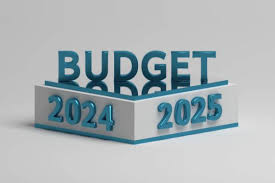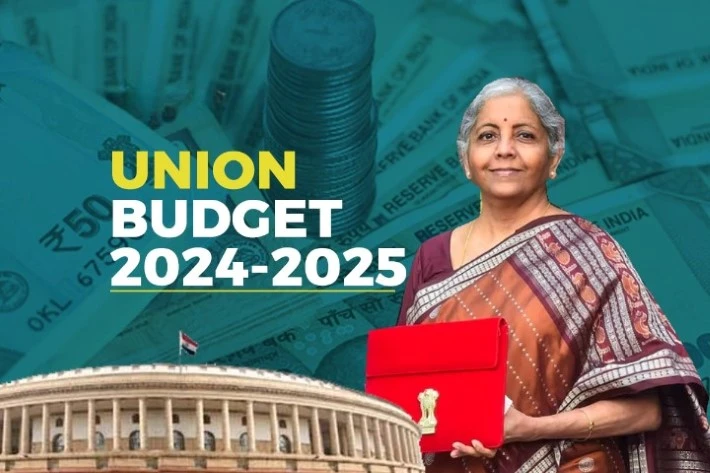Table of Content
▲
In recent years, India has made remarkable strides in infrastructure, with enhanced road, rail, and air networks making even remote areas more accessible. This progress has spurred real estate growth in Tier-II and Tier-III cities, areas that were previously overlooked due to poor connectivity.
The Union Budget 2024-25 is set to be presented in Parliament on July 23 or 24. As the second-largest employer in India after agriculture, the real estate sector has a wish list ready for this budget. Let's explore the industry leaders' expectations.
Affordable Housing
Recently, the affordable housing segment has seen a decline in overall sales, partly due to rising home loan interest rates, which have impacted both homebuyers and the sector. While the Modi 3.0 government has approved the construction of over 3 crore houses under the Pradhan Mantri Awas Yojana (PMAY), more incentives are needed to revive this segment.
Price Bracket
Dhruv Agarwala, Group CEO of Housing.com and PropTiger.com, suggests that the upcoming budget should focus on revitalizing the demand and supply for homes priced between Rs 15-75 lakh. Introducing interest subsidy programs and encouraging state governments to reduce stamp duty on affordable housing can make these homes more accessible.
Also Read: Everything You Should Know About the Smart Cities Mission
Extensive Land Banks
Agarwala also recommends that the government deploy its extensive land banks in partnership with private developers, offering land and capital at concessional rates. Tax incentives for developers engaged in affordable housing projects could further stimulate this sector. This approach would not only boost the real estate sector but also energize around 200 ancillary industries, significantly enhancing job creation.

Addressing Land Shortage
Dharmendra Raichura, VP Finance at Ashar Group, suggests that to address land shortages in metropolitan and semi-metropolitan areas, the government should release government-owned lands at reduced rates. This includes land owned by entities such as Indian Railways and Port Trusts, which could help lower real estate prices.
Income Tax Exemption
Raichura also advocates for increasing tax exemption limits on both the principal and interest paid on home loans. Providing tax incentives for developers focusing on affordable housing and reintroducing a 100% tax holiday for affordable housing projects under Section-80IBA could stimulate supply to meet the growing demand.
Foreign Direct Investment and Infrastructure
Sandeep Runwal, Managing Director of Runwal, believes that the government's commitment to creating world-class infrastructure will attract Foreign Direct Investment, encouraging NRIs to invest in luxurious properties. Reducing long-term capital gains taxes on property, streamlining REITs, and increasing the interest rebate limit for housing loans could further boost investment.
Also Read: Budget 2024 Realty Sector - Hoping on GST Reduction and Affordable Housing Revamp
Addressing Liquidity Issues
Prashant Sharma, President of NAREDCO Maharashtra, expects the budget to introduce measures ensuring easier access to financing for developers, especially SMEs. Increasing the flow of money through banking and non-banking financial institutions and creating a second tranche of the SWAMIH stress fund with a corpus of Rs 50,000 crore could help complete stalled realty projects and ensure adequate liquidity.
Single Window Clearance
Introducing a single window clearance system for all real estate projects would streamline the approval process, reducing delays and costs. This measure could accelerate project completion and enhance the ease of doing business in the sector.
Industry Status for Real Estate Sector
With the Real Estate (Regulation and Development) Act (RERA) implemented across most states in India, granting industry status to the real estate sector is the next logical step. This would facilitate easier access to funding at lower interest rates, reducing the cost of capital for developers and accelerating infrastructure development, leading to overall economic growth.
AcquireAcres.com POV
The Indian real estate sector is eagerly awaiting favorable budgetary support from the Union Budget 2024. Positively impacted by the implementation of RERA, the sector looks forward to the implementation of a single-window system. Following the infrastructure status awarded to the affordable housing segment, it's time for the real estate sector to be granted industry status, which would further help the sector contribute to India’s rising GDP.
Also Read: Budget 2024 Impact on Real Estate: Developer's View



_1772441702.webp)





Ans 1. Interim Budget 2024: Roadmap for Viksit Bharat 2047 There will be substantive development of all forms of infrastructure - physical, digital and social. Digital Public Infrastructure (DPI) will promote formalisation and financial inclusion. The government plans to deepen and widen the tax base via GST.
Ans 2. "Some of the top sectors which are most likely to benefit are defence, infrastructure and Public Sector Undertakings (PSUs). Investors are hopeful for these sectors as they are expecting a major allocation and policy continuation," said Singh.
Ans 3. In the Interim Union Budget for 2024-25 presented in February 2024, Finance Minister Nirmala Sitharaman made several significant announcements for the health sector. The budget allocated ₹90,171 crore to the health sector for 2024-25, which was higher than the allocation of ₹79,221 crore in 2023-24.
Ans 4. Budget 2024 estimates nominal GDP for 2024–25 to be Rs 3,27,71,808 crore. Based on these data, the total tax revenues of the Centre and States works out to Rs 55,71,207 crore. Gross tax revenue in Union Budget 2024 is Rs 38,30,796 crore. Total tax revenues of States therefore works out to Rs 17,40,411 crore.
Ans 5. No changes have been made by the finance minister Nirmala Sitharaman in the income tax slab rates in interim Budget 2024. The income tax slabs and income tax rates will remain unchanged in the financial year 2024-25, starting from April 1, 2024.